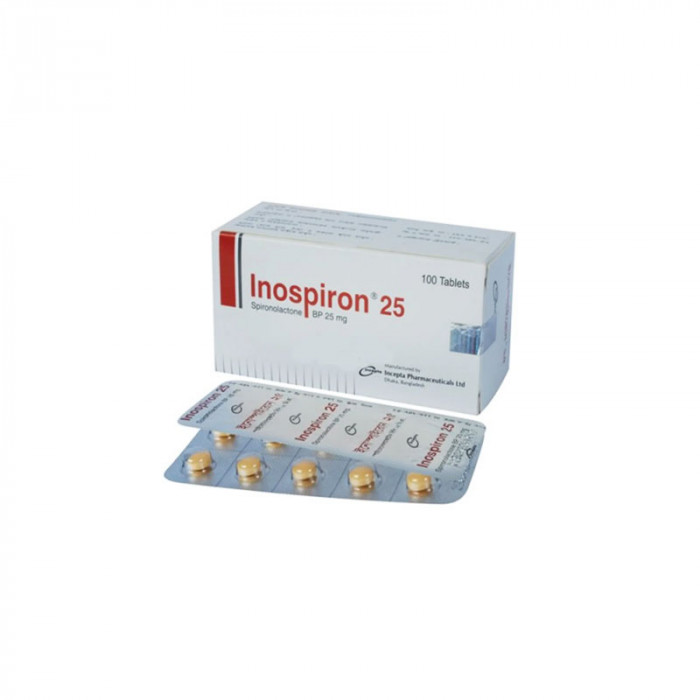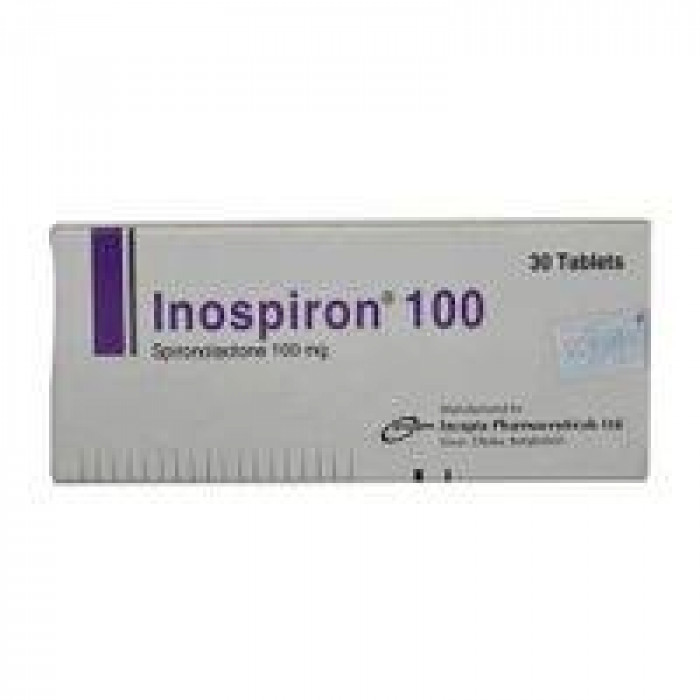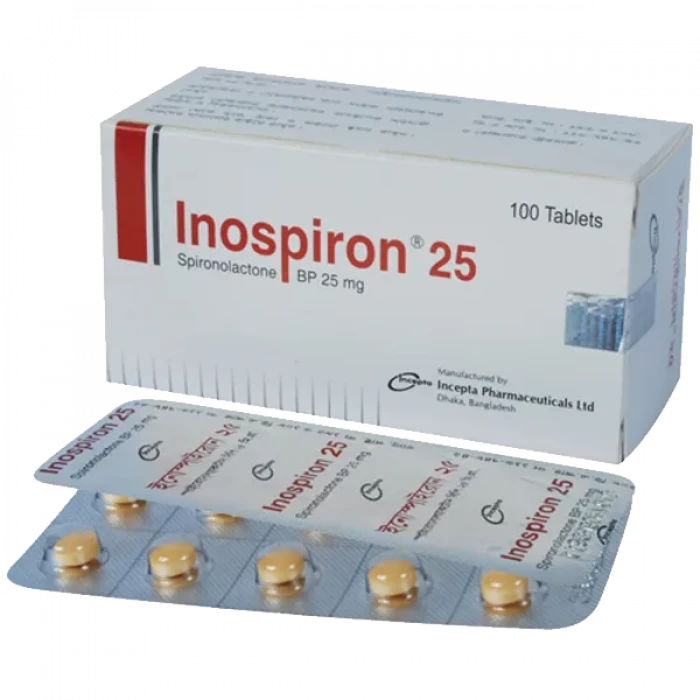
✔ 100% Authentic Product
👁️ Currently Viewing 2289
✅ Description:
Indications
Spironolactone is used to treat congestive heart failure, hepatic cirrhosis with ascites and oedema, nephrotic syndrome, primary hyperaldosteronism, essential hypertension, and hypokalemia.
Pharmacology
Spironolactone is a selective pharmacologic antagonist of aldosterone that works largely by competing for receptor binding at the aldosterone-dependent sodium-potassium exchange site in the distal convoluted renal tubule. Spironolactone induces an increase in sodium and water excretion while retaining potassium. Spironolactone works as both a diuretic and an antihypertensive agent through this mechanism. It can be used alone or in combination with other diuretics that operate more proximally in the renal tubule. Aldosterone stimulates the expression of the Na+ K+ ATPase and the Na+ channel involved in Na+ K+ transport in the distal tubule by interacting with a cytoplasmic mineralocorticoid receptor. Spironolactone binds to this mineralcorticoid receptor, inhibiting aldosterone's effects on gene expression. Aldosterone is a hormone whose major function in the kidneys is to retain sodium and release potassium.
Dosage & Administration
Edema in adults (congestive heart failure, hepatic cirrhosis, or nephrotic syndrome): An initial daily dosage of 100 mg of Spironolactone administered in either single or divided doses is recommended, but may range from 25 to 200 mg daily. Combined therapy with other diuretics is indicated when more rapid diuresis is desired.
Primary hyperaldosteronism: After the diagnosis of hyperaldosteronism has been established, Spironolactone may be administered in doses of 100 to 400 mg daily in preparation for surgery. For patients who are considered unsuitable for surgery, Spironolactone may be employed for long-term maintenance therapy at the lowest effective dosage determined for the individual patient.
Essential hypertension: For adults, an initial daily dosage of 50 to 100 mg of Spironolactone administered in either single or divided doses is recommended.
Hypokalemia: Spironolactone in a dosage ranging from 25 mg to 100 mg daily is useful in treating a diuretic-induced hypokalemia.
Interaction
Concurrent use of ACE inhibitors and potassium-sparing diuretics has been linked to severe hyperkalemia.
Alcohol, barbiturates, or narcotics: Orthostatic hypotension may be exacerbated.
Corticosteroids and ACTH may cause increased electrolyte depletion, notably hypokalemia.
Lithium: In general, lithium should not be used with diuretics. Diuretics decrease lithium renal clearance and increase the risk of lithium poisoning.
Spironolactone has been found to prolong the half-life of digoxin.
Contraindications
Spironolactone is not recommended in individuals with acute renal insufficiency, severe impairment of renal function, anuria, hyperkalaemia, or Spironolactone sensitivity.
Side Effects
Spironolactone usage may result in gynaecomastia. Other side effects include: gastrointestinal problems such as cramps and diarrhoea, sleepiness, lethargy, headache, urticaria, mental disorientation, impotence, irregular menstruation or amenorrhoea, and post-menopausal hemorrhage.
Pregnancy & Lactation
Spironolactone should not be taken during pregnancy.
Canrenone, an active metabolite of Spironolactone, is found in breast milk during lactation. If the medication is judged necessary, an alternative way of baby feeding should be used.
Precautions & Warnings
All diuretic-treated patients should be monitored for signs of fluid or electrolyte imbalance. Hyperkalemia, which can be deadly in individuals with poor renal function or high potassium consumption, can develop in people with impaired renal function or excessive potassium intake.
Storage Conditions
Store in a cold, dry, and light-protected location. Keep out of children's reach.
⚠️Disclaimer:
At ePharma, we’re committed to providing accurate and accessible health information. However, all content is intended for informational purposes only and should not replace medical advice from a qualified physician. Please consult your healthcare provider for personalized guidance. We aim to support, not substitute, the doctor-patient relationship.








